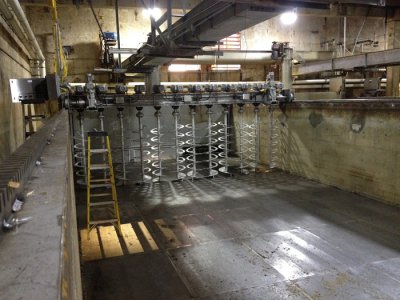This was a very clean although wet environment, dirt shouldn't be a problem. The bearings were normally greased on a regular basis, but I would not think that it had anything to do with the anti-seize / grease mixture either. In this particular instance, the bearing was installed by a new guy who evidently did not know any better. These bearings typically lasted several years with grease as the lubricant, but for some reason it appears that anti-seize did not work well. Now, it is possible that there was an unseen problem with this bearing right out of the box, and its failure and the use of anti-seize were just a coincidence, but the old timers there all claimed that it failed because of the anti-seize. Maybe they were right, maybe not.



 very true! My can was getting dry after about 5 years, so I mixed in a little mineral spirits to liquefy it again. That was about 10 years ago. It still isn't even half gone yet.
very true! My can was getting dry after about 5 years, so I mixed in a little mineral spirits to liquefy it again. That was about 10 years ago. It still isn't even half gone yet.